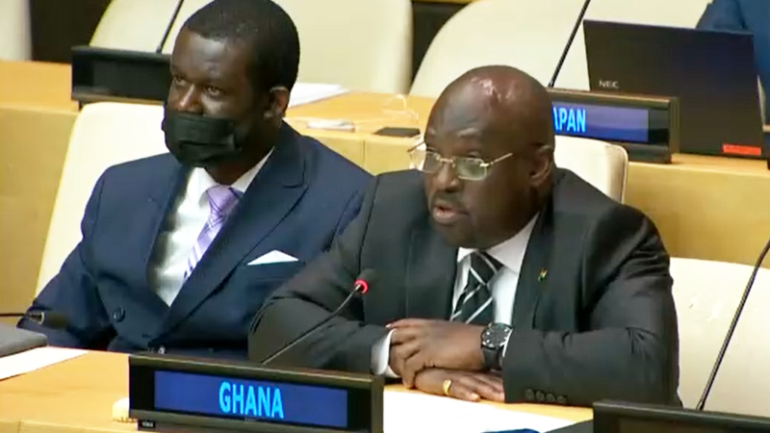Ensuring access to Mental Health and Psychosocial Support in Conflict

- Posted by admin
- Posted in Statement & Remarks
Mr. Chair and dear friend, Ambassador Juan Ramon,
Let me begin by thanking Mexico for convening this Arria-formula meeting on mental health and psychosocial support in conflict, post-conflict and humanitarian settings. I also thank the briefers for their insightful presentations.
As is normal in our human endeavour, in situations of insecurity we all become apprehensive, but with different capacities for coping with unsettled situations. With one in five people experiencing mental health disorders in conflict settings the elevation of the mental rights of persons in conflict or emergency situations cannot be ignored; it must be addressed. We regrettably witnessed this deeply worrying phenomenon during the early stages of the COVID-19 pandemic but also my delegation has seen it in some of the conflicts that took place on the African continent in the aftermath of the end of the Cold War in places such as Liberia, Sierra Leone, in Uganda and the Democratic Republic of Congo.
Despite the rise in mental health disorders resulting from global insecurities, including conflicts, the mental health needs of victims remain widely unmet as per the Global Humanitarian Overview 2021, which indicates that for every 10,000 people globally, there is only one mental health professional. These developments underpin the urgent need for action to be taken at the national, regional and international levels in addressing the issue. Promoting existing mechanisms such as the 2020 Joint Interagency Call to Action on MHPSS and the Common Monitoring and Evaluation Framework for Mental Health and Psychosocial Support Programs in Emergency Settings is key to addressing the situation..
In light of the above, my delegation would wish to highlight the following five points:
First, we need to recognise that addressing the mental and psychological needs of the general populations is a fundamental human right and instrumental in building resilient, just, peaceful and inclusive societies in accordance with goal 16 of the SDG’s and improved health goal 3 of the SDGs. In the case of conflict or other emergency situations it becomes even more critical.
Secondly, the UN system can integrate age-sensitive and gender transformative MHPSS services in interagency coordination response mechanisms by incorporating mental health needs in the development of humanitarian programmes. We welcome the Secretary-General’s report on peacebuilding and sustaining peace, which calls for the inclusion of mental health and psychosocial support into peacebuilding to help increase individuals and communities’ resilience and agency. We encourage more of this narrative and follow-up action by the UN Agencies.
Thirdly, using community-based approaches by involving communities in all stages of Mental Health and Psychosocial Support constitutes one of the best practices that should be encouraged. This approach facilitates families, groups, and communities to support and care for others in ways that promote recovery and resilience and make humanitarian programmes more enduring, sustainable beneficial.
Fourthly, States can support efforts to coordinate existing activities and programmes for easy access to mental health services in conflict situations by enacting policies to address mental health disorders and integrating them into national humanitarian and development projects. States need to make a conscious effort to invest in mental health infrastructure as well as the training of more mental health personnel to address the needs of victims. Without an existing system and infrastructure, there is little to build upon in responding to an emergency.
Fifthly, the Security Council can ensure that access to MHPSS services becomes an essential component of all its mandated protection tasks by integrating language on mental health issues in mandate renewals and humanitarian resolutions where deemed useful.
In concluding, Ghana believes that addressing the underlying causes of conflicts and instability, including governance and development deficits, remains critical to managing the rise in mental health issues globally.
I thank you for your attention.
